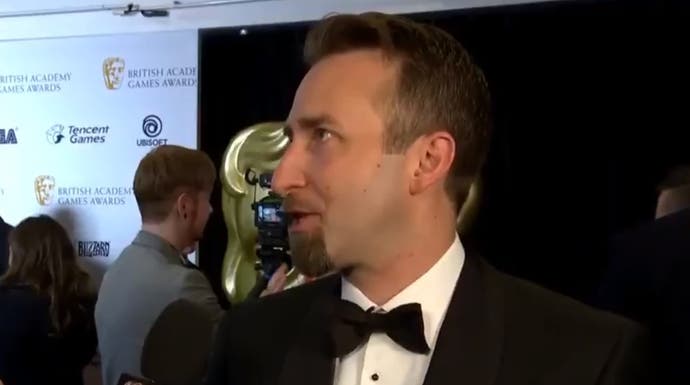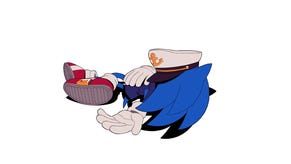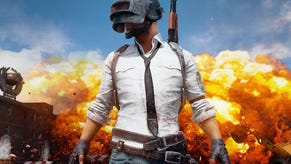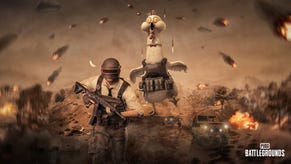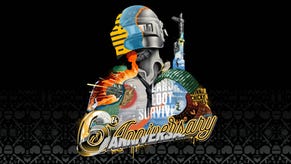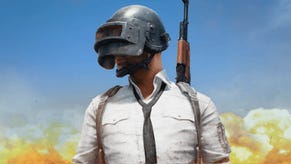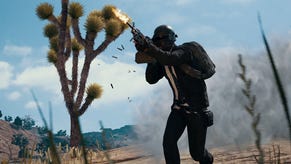PlayerUnknown on PUBG's future
"People were saying 'oh, you're copying Fortnite' - well, no."
PUBG is in a weird place right now. It's still hugely popular, still hugely well-played, still, by some way, the biggest game on Steam - and somehow it's become something of the underdog.
Fortnite - let's just get on and address the llama loot box in the room - looks an awful lot like a threat, not just to PUBG's dominance but to Brendan Greene's crown as king of battle royale himself. But there's room for two games in one genre, and in fact I think PUBG, really, has a bigger threat to deal with first: from the outside, at times, it can seem as though this game has a worrying lack of direction.
Bluehole and PUBG Corp. have been pretty open about the changes that are coming. When players get a whiff of uncertainty they like to demand the release of a "Roadmap" - but the thing about these development roadmaps is that, while they tell you lots about the actual changes that are coming, they can often tell you nothing at all about what those changes are really for.
Under the pretence that PUBG Corp.'s ongoing legal battles were off the table, I sat down with Brendan at EGX Rezzed over the weekend for a pretty wide-ranging chat, in the hope of finding out what that grand vision was for PUBG, where it goes next, and if, amongst all the pressure from competition and players alike, this is still the battle royale game he originally set out to make.
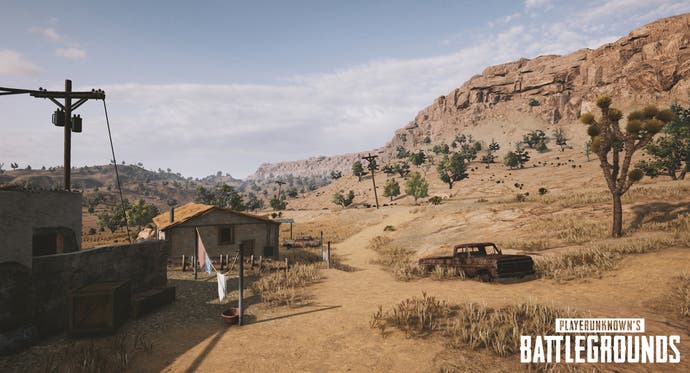
I want to start off with the Roadmap - that seemed like it was a fairly big moment for you, and the team, and at a fairly crucial time… how much of a hand did you have in that personally?
Brendan Greene: I mean I'm kind of overseeing a lot this stage, and because I travel a lot I don't get to spend a lot of time with the team directly in Korea, but you know I trust [our team leads] with the game, they've really been doing such an amazing job at getting it to where it is without me having to have too much of a hands on, because of the fact I have to travel so much, which is what I get for putting my name on the game. But this is the vision now I outlined for them last year, they know what they want from PUBG, I didn't have to have that much of a hand because they brought their ideas for this year and it was like "Yep! Yep! Yep!" So while I wasn't very hands on, I was still overseeing a lot of the stuff.
I think that roadmap gives us a very good idea of granular stuff - I don't want to dive into that too much - but what it left me wondering was what the big picture was for PUBG. What's the long-term vision?
Brendan Greene: Well we've said this before you know we want to build this game as a service. We want to build this as a platform for game modes, for not only battle royale but for other game modes that we ever put in the Event servers or that the community come up with via Custom games. We want to bring our Custom games to even more people this year and really start to polish off that system. So for us it's about creating a platform, and creating a kind of stable base for a possible esport or just as a platform for many different types of game modes.
Where do you see PUBG in say six months or a year or three years then, how do you think it'll evolve and where'll it end up?
Brendan Greene: Right now this year we're really heavily investing into setting up an esports infrastructure, we're building an esports team globally now, between the US and Europe and Asia, and really trying to develop out the tools we need to support esport organisations and players in order to give a good foundation. So, that's where I want to see it in three years, I want to see it as a considered esport with events taking place in big stadiums and sort of year long leagues, that's what my dream for battle royale has been, that's where I want to see us go, and looking at what we're doing this year I really see that as a great chance.
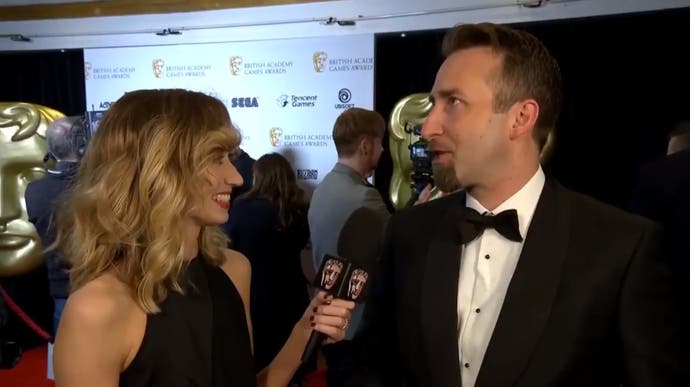
Do you think that you could have done more to convey what that long-term vision is to the players?
Brendan Greene: Oh definitely. We went a little radio silent after full launch, because we really did have our heads down and tried to figure out what we wanted to do this year. Now since we've announced the Roadmap we're really trying to open up again, and you're starting to see that - we've got Savage into the hands of the payers much earlier this time, much like we did when Erangel - when the game was first announced and we had a pre-alpha with a prototype - so, it's the same with Savage, we really want to get an early version out so people can test it. We want to continue that sort of open development again and get back into it this year, as I said we were a little quiet but we were growing a company, you know, and creating a new culture and trying to expand worldwide so you know that drew our focus, to really try to get the right people - and growing a company's not easy. Some areas kind of fell off and this year we want to make up for that and really get back and talk to the community again.
How big has the company got, can you say?
We're about 300 now, a little more than that. That's between the main body of our workforce over in Korea, and we now have studios in Madison, in Santa Monica, in Amsterdam, and then small offices in China, Tokyo all over. It's amazing to see, it really is.
Do you think that growth spurt's settled down a bit now?
Brendan Greene: It's getting there. The new office in Amsterdam we opened because it's very hard to get very qualified developers to move lock stock and two smoking barrels to Korea, it's a big move for people. But Amsterdam is much more reasonable, everyone speaks English there, it's much more relatable. We're still expanding, it hasn't stopped yet. As I said this year we need to expand on esports so that's a global team we need to build up. Yeah! We're still growing.
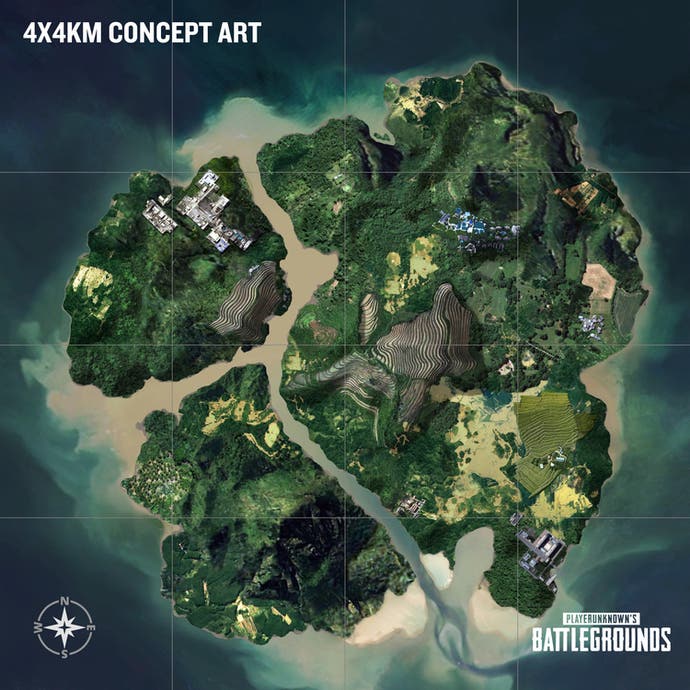
You've been reacting quite a bit faster to player feedback and generally your changes are happening more often. What would you say to people who'd say that's a sign you're being too reactionary?
Brendan Greene: We've done this from day one, it was open development with the community. It's a multiplayer game that relies on players, and their feedback is crucial. Yes there are some really loud voices there, but we have a really good data analytics team and a community team - we don't rely just on the loud voices. We look at all the data from across all the forums, have wonderful internal, like PDFs just showing us what the sentiment is online about certain things and what the words have been used, so it's not reactionary, we're looking at the data, and sometimes it'll sync up with what the community want, and other times it's what we think is right for the game. We want to listen to the community - we understand that there's objective and subjective feedback and that it's finding that balance.
So if someone wanted something more extreme - for instance there's been a lot of chat about getting rid of the Red Zone - if that became like an overwhelming voice-
Brendan Greene: It is an overwhelming voice already! And people say there's no reason to it but it provides audio cover, it really looks cool when you're fighting in it. And really, you shouldn't be dying to the Red zone. If you're dying to the Red zone then, I'm sorry but you're not a very good player. It's like, you know there's a hundred metre safe zone around the edge of it, if you're in a building there's a very little chance of you getting hit, it's there for a specific reason, it looks really cool and it provides tension. If you're trapped in a fight in the Red Zone, it's exciting! People say that it has no reason, but it does. It's there for a very specific reason which is providing audio cover and even when it's a little bit in the distance it provides enough cover to run a little bit, so, there are reasons. But, that said, if there is an outpouring of hate towards it, we may consider it.
Nothing is off the table - we recently removed clothing spawns from the loot system and people were saying "oh what it would take for me to remove that?" Because they thought I would never remove it. People sometimes think that I won't remove anything because it's my baby, or my ego's so huge, it's like, we listen to the community. If we really think it plays better losing certain things, we will change it. We are about this open development and about getting community feedback and implementing it in the game.
Has the emergence of some other competition made it harder for you not to be reactionary? Does it make you think "oh we really need to play to what the community wants or we lose them"?
Brendan Greene: No. No, as I said we did go a little radio silent, but again, it was because we were trying to expand globally. We had to focus on getting the right people, that took a lot of our time. So, we try not to be reactionary. It was funny, when we released the Emotes people were saying "oh you're copying Fortnite" - well, no. We recorded these Emotes in Prague last year, before Fortnite [Battle Royale] was even announced. We had an intention to put a means of non-verbal communication into the game because we really believe you know that there are some people with mics, some people without mics, so having a way for them to communicate with their squad members is essential, and it's essential for a tactical gameplay. So we have these plans that have existed for the last year. Sometimes it'll be the same, as other games you're doing, sometimes they'll be different but it's not reactionary. It's not us trying to copy other things. We have our plan, and sometimes it'll sync up.
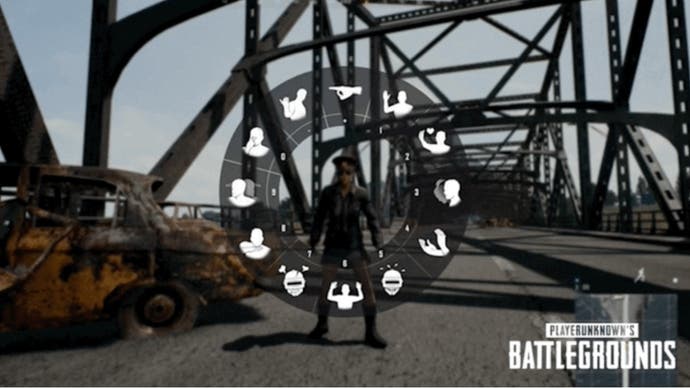
Do you have any goals for how you'd improve that communication? Do you have examples of other games that do it well that you want to emulate?
Brendan Greene: We used to be very good at communication, back last year, and then we got overwhelmed with trying to build to company. We've now hired Billy Shibley as Social Manager, we have a new Communications Lead, so our marketing team and community team have really now got some really good figureheads to drive the community relationships a lot harder. You could see that we really are - our Twitter now is much more active with talking to people, same with our forums on our Reddit, we're really trying to get back to talking with the community. I think our new hires are really doing a good job of this.
Now battle royale has kind of shifted from a game, or a few games, to a genre itself, how do you make PUBG stand out? You mentioned esports is that it? Is PUBG's niche the fact that it can work as an esport?
Brendan Greene: I got this question a lot when we first started PUBG - it's not about standing out, it's about making a good game and a good, realistic battle royale and that's our intention. It's about really polishing off what we have even though we are releasing new content, we still have teams working on bug fixes. Some bugs take a long time to fix. You know the PhysX bugs, with the cars crashing together, that's a very tough problem to fix, you know. There's stuff that goes on that, you know it takes time. We did shadow caching last year, which was improving shadows across all levels of the machine. That took the rendering team three months to write. Some bugs just take an inordinate amount of time to track down and fix. We are focused on that but we're also focused on new content. But this year it's about polishing it off and it's about improving on what we have and making it stable and giving both content creators and esports organisations tools to create new content for the game.
You mention those bugs - in a weird way they're a part in the soul of the game right, sometimes it's almost part of the enjoyment-
Brendan Greene: I love the PUBG Rocket Program, it's a wonderful space race we've got going on…
So if PUBG was a super polished game that's completely bug free, would it lose something?
Brendan Greene: I'm sure it would lose a bit but, the players would love us for it. Really we want this to be a great esport, and it can't have bugs for an esport. Now, that said there are not that many game-breaking bugs, you know like you see with the tournaments, there's very few people dying from bugs. And I can tell you internally there was a competition in Korea a few weeks ago that led to a change in our competitive settings because of a certain issue that happened, but the team were very quick to go "okay we can fix this, let's fix it". So I like that the team are very reactionary to stuff like this so that, if we see something, we try and stay up long hours trying to fix it so it doesn't happen again.
Going back to battle royale and the rise of those other competitors… does that competition affect how you do things in any way? I know you talked about always wanting to get back to communication and so on, but does it not make you reflect on anything, or affect anything at all?
Brendan Greene: No. I mean we've learned a lot this last two years now that we've been developing. PUBG Corp. is still quite a new company, so we're spending time to build the right culture internally. We still have the idea that our CEO Dr. Kim said which was "iterate", just keep iterating on the ideas, don't be afraid of trying things. And we won't be afraid. We really want to keep iterating and keep trying stuff, and we have our Test Server, we have our Experimental Test Server now so we can roll out stuff earlier. And it really is about using our community and getting their feedback early on so we can just keep testing and keep moving forward. So the process we built up last year we're just refining now and carrying into the future.
We touched on this a little earlier with the Roadmap too but I want to circle back - how much time do you actually get to work on the game?
Brendan Greene: The thing is we live in 2018. Between OneNote or Confluence or email, I can keep on top of everything. But as I said the team that we built in Korea, I have confidence, I know that I don't need to be hands on, because I know they understand the vision for the game, we know what we want from them, they know what I want for the game, I don't need to say things to them - we have long conversations when I'm in Amsterdam or when I'm back in Seoul and they just get it. What I like is that I don't need to be hands on because the team understand. And having that freedom to come and do the press and do the public appearances, I really appreciate that.
You know I had the chance to meet Dara O'Briain last night [at the BAFTA Game Awards] and he said in Ireland he wants me to help do some STEM stuff and talk to some kids in schools and stuff like that. If I was fully hands on with the game it wouldn't give me the opportunity do that, and being able to inspire kids and inspire people to get into game development and try their hand - that's a really important thing I can do outside of just making a game. Having a great team where I don't need to worry about the game, it's great.
Does PUBG now - with event mode and emotes and new modes - does that look like the PUBG you originally had in mind when you started making it?
Brendan Greene: More or less! I wanted to build a platform for game modes which we have, I wanted a great realistic battle royale game. It's actually grown to more than what I expected. Internally the ideas - the revive system came from the team, I had never thought about that - and that proved to be a great success. So it's kind of grown to more than what I expected, but it is the game that I wanted to make.
Do you ever see some of those temporary modes, like War mode, ever coming into the game full time?
Brendan Greene: Don't know. Honestly I can't confirm or deny them. I would love to see more game modes coming into the game, and I think the event mode server is great because it lets us test these things, and if the public absolutely adored something maybe we'd look to add it full time. That's the whole idea behind the event mode to test some of these modes, maybe some will make it in the end maybe some won't. You know the Custom game servers, we want to give access to many more players this year, and have presets for Zombie mode or some of these other modes, even some modes that players come up with and maybe add those to the game. So we want this, we want to expand on that, and we want to provide Battlegrounds for people to fight whatever way they want to.
So we can probably expect more battle royale modes or games to come - I'd bet good money Black Ops 4 will have battle royale, or Battlefield. Do you think increasing the breadth of your game with a load of new modes like that is how you stand up next to them?
Brendan Greene: Oh for sure. I want Battlegrounds not just to be battle royale I want it to be a great platform for people to create their own games. With our Custom Games server we really want to give fine grain control over what you can control in the game, and do it via UI so it's almost like modding - I don't know if we could ever allow full modding because of security and privacy aspects that you have to consider - with "modding light" almost with Custom Games, I really want to be able to give people a platform to create their own spins on battle royale or even other game modes that have nothing to do with battle royale. It's really just giving them a platform.
You've talked about handing over a lot of it to the team. Your name's on the box - is it really your game?
Brendan Greene: Oh no it's our game - it's both the community and the team's game. Yes it's my name on the box, but it's their game, they poured their hearts and souls into it. I say it all the time it's the team that I thank, when I'm accepting awards. It's the team that I thank. They put in the hours. I outline the vision and we spent many many months at the start trying to figure out what I wanted for the game, but now they understand. And they work long hours - not because we ask them to - it's because they want to, they want to do the best job they can because they love the game. We have play days every week in the office and it's such excitement every time, when it's last two where there's groups of people huddling around them cheering on their favourite - seeing that sort of passion for the game is wonderful.
Okay, last couple of questions, these ones are nice and easy so you can relax. Firstly, I spend a lot of time writing guides for PUBG on Eurogamer, which means lots of time looking at all these mega spreadsheets of damage stats and rate of fire and all that. I am convinced, after all of that, that the Uzi is the best gun in the game. But no one back in the office will believe me.
Brendan Greene: Close in, yeah!
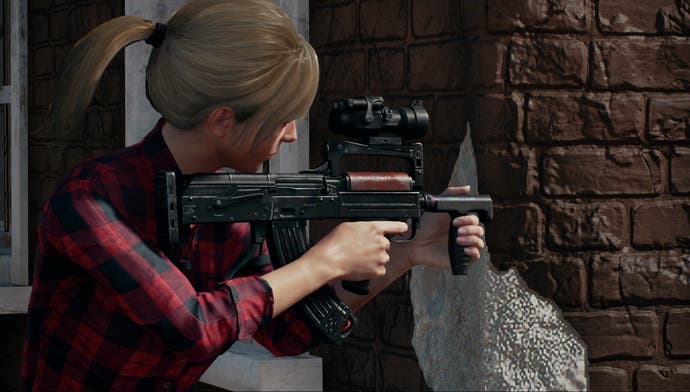
Right! So can you please confirm for me, on the record, that the Uzi is, objectively, the best gun in the game. So I can go back to the office and tell everyone.
Brendan Greene: For you? No I mean… technically it's got the highest rate of fire. You know we tried to replicate real-life rate-of-fire which is like, 900 bullets per minute or something [it's actually about 1200, which is matched by the Uzi in-game], so it's ridiculously high so, we made it so that it was realistic as possible. So, close in… it's either that or the Glock. The Glock-18 I love on full-auto it's a beast but, close in the Uzi is pretty damn powerful.
Okay close enough. What's another word for two weeks?
Brendan Greene: ...
